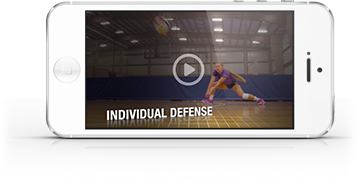Shawn Hueglin, PhD, RD, CSSD | United States Olympic Committee
As the mother of a 3½-year-old, I try to remind myself each day not to get drawn into the drama but to take a step back and a deep breath or two! This recommendation can be applied to nutrition information as well.
We are often overloaded with tweets, posts, streaming movies, alerts and banners – to the point where it’s hard not to drown in nutritional drama.
Furthermore, science is fluid and constantly evolving as we learn new information about our food supply, how the body responds to it and what each individual needs for optimal health and performance. I have spent years studying nutrition and physiology, and I still find myself lost in the information. I still can be easily convinced that product “XYZ” is the newest solution to anything!
If you’re struggling to navigate nutrition information or feel yourself jumping quickly into nutrition fads, here are 4 tips to help you take a step back and better evaluate the information that is bombarding you:
- Reread what you read. Sometimes we speed read or glance over an article or post and miss key details that are important to the big picture. This can lead to overestimating the impact of something. Go back and read something again to be sure you have understood it and can make an educated decision about what you have read. The second time, read more carefully and identify the author’s intent and possible agenda. Are they trying to educate, change your mind, sell something, or are they simply offering an opinion?
- Look beyond what is reported in the media. The media or an individual author often use one research study to highlight or support their argument. It’s important to be aware that, in most cases, you can find at least one article to support your premise. When doing your research, consider these questions:
- Has the study been replicated, or is this the only study to report these results?
- Was the study completed using an appropriate protocol and published by a reputable source?
- Check your intuition. Does what you have read or viewed make sense? Compare it to what you have previously learned. Is it at the far end of the spectrum from your current understanding or just a slight variation? Does it make you question your whole approach to eating, or does it just add information?
- Question the source. Keep in mind that there are many people who consider themselves nutrition experts. Some are, but some are not! Just because something is printed or reported in the news doesn’t mean it’s accurate. Doctors do not typically have a lot of training in nutrition; however, they are often the experts people rely on for advice. Registered dietitians (RD) are the only professionals required to focus their coursework in nutrition, complete an extensive dietetic internship and pass a board-certified exam. This is similar to the process nurses, physical therapists and physicians follow. If you have a question regarding nutrition, an RD should be the first source you consult.
Nutrition is ever changing, which is exciting but also frustrating. On one hand, we are hopeful that new research and knowledge will help us improve our habits and live longer. On the other hand, we feel like recommendations are always changing in a way that makes it hard to keep up and know what’s best. However, these nutrition recommendations have stood the test of time:
-
- Eat a variety of foods and nutrients.
- Fill your plate with lots of color from fruits and veggies.
- Choose foods rich in carbohydrates, fats and protein each day. (The ratios, amounts and types will vary for everyone!)
- Hydrate with water throughout the day.
Enjoy your meals and the people you share them with.
Shawn Hueglin is a Senior Sport Dietitian at the United States Olympic Committee who works regularly with players on the U.S. men’s and women’s national volleyball teams.




